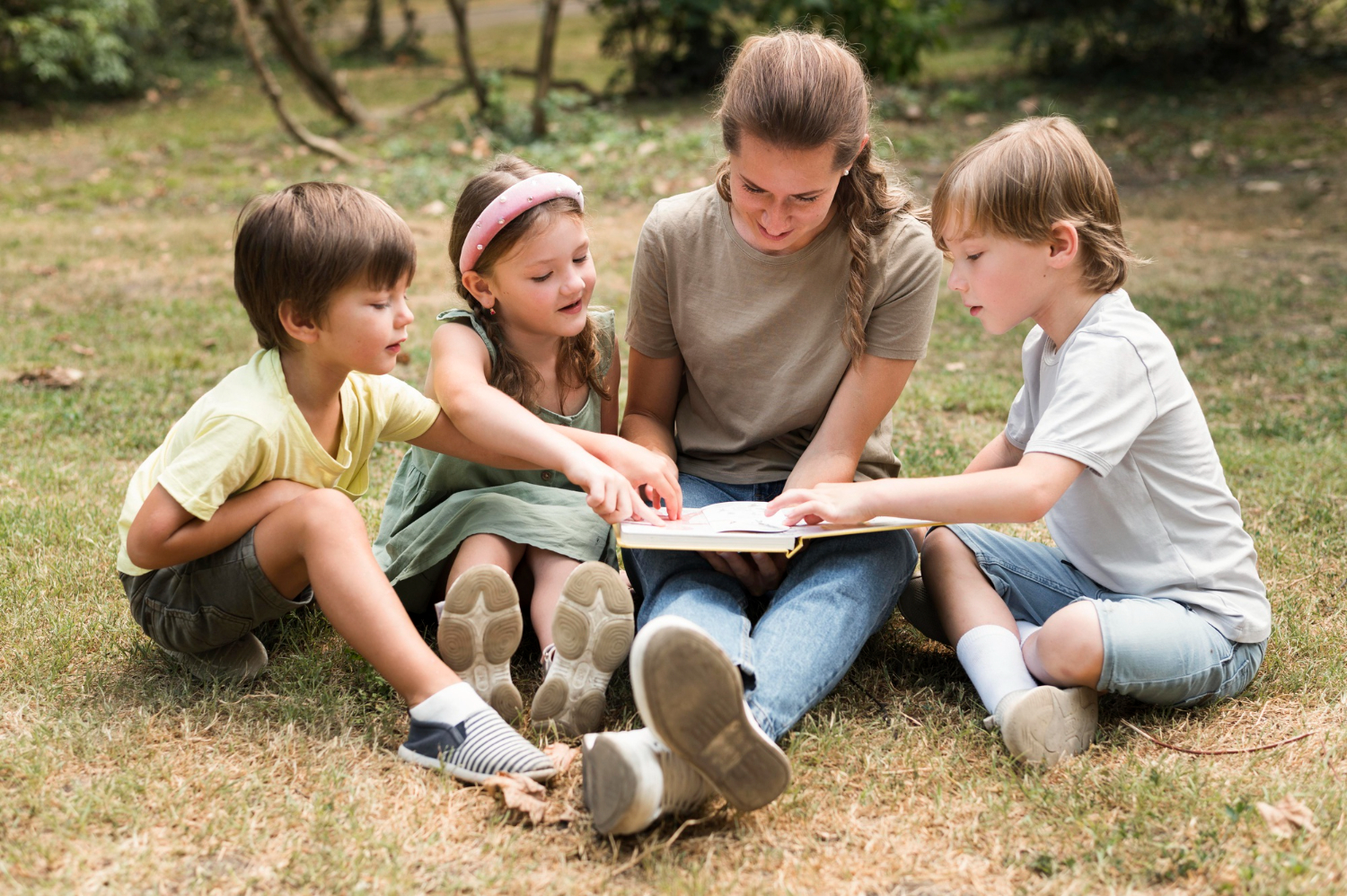
When you think of storytime, you might picture cozy corners and picture books. But did you know that when storytime is led by a speech-language pathologist (SLP), it becomes a powerful tool for language development?
Speech therapy-led storytime is more than just reading a book aloud—it’s an intentional, therapeutic experience that nurtures your child’s communication skills in fun and engaging ways. Here’s how it works, and why it could be one of the best things you do for your child’s language journey.
SLPs are trained in how children acquire language, and they use every page of a story to introduce vocabulary, model sentence structure, and ask open-ended questions.
During therapeutic storytime, you might hear an SLP say something like,
“Look! The dog is jumping. Can you jump like the dog? What else can jump?”
This turns a passive story into an active language experience.
Kids thrive on repetition—it helps them process and remember language. SLPs often choose books with repeating phrases or rhymes and may reread stories across multiple sessions. This reinforces vocabulary, grammar, and comprehension in a way that feels familiar and fun, not like a lesson.
Therapeutic storytime isn’t just about listening—it’s about doing. Children are encouraged to point, gesture, mimic sounds, and answer questions. These moments of interaction build foundational skills like joint attention, turn-taking, and expressive language.
If your child has difficulty with articulation, understanding directions, or expressing themselves, a speech therapy-led group can be especially helpful. The SLP can tailor the story and accompanying activities to focus on specific goals—like practicing certain sounds, phonological awareness, improving comprehension, or encouraging social skills such as turn-taking.
This group setting also offers peer modeling, where children can learn from each other’s speech and interactions in a supportive environment.
Music is a powerful tool for language development. Many SLPs include songs, rhymes, and rhythmic chants as part of storytime. These musical moments help kids:
Young children learn best when their bodies are involved! Movement breaks are woven into storytime to give kids a chance to wiggle, jump, stretch, or act out parts of the story. These breaks:
Whether they’re hopping like a bunny in the story or dancing to a themed song, kids are learning through movement.
Perhaps one of the most beautiful outcomes of therapeutic storytime is confidence. Children who struggle with language can sometimes feel left out during traditional storytimes. In a speech therapy-led session, every child’s participation is supported and celebrated. Over time, you’ll notice your child becoming more willing to speak up, answer questions, and share their thoughts.
Speech therapy-led storytime is a blend of science and storytelling. Whether your child has a diagnosed speech delay or you just want to support their communication development in a creative way, these events offer a goldmine of benefits. Join Parkwood’s therapeutic Storytime Every Friday from 11:00-11:30AM at our Bridgeport location and the first Tuesday of every month at Annie Blooms Bookstore from 10:30-11:00AM. All ages welcome!
